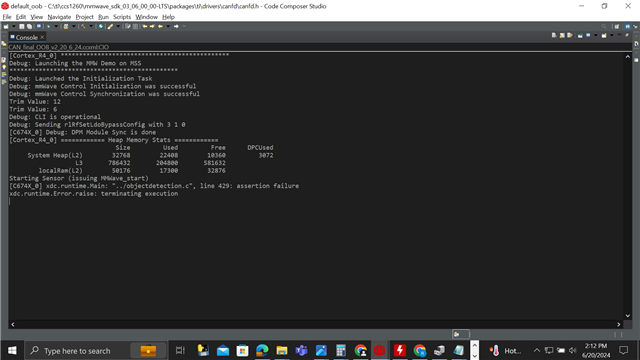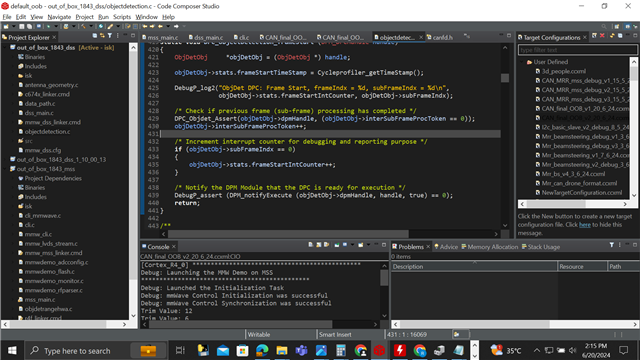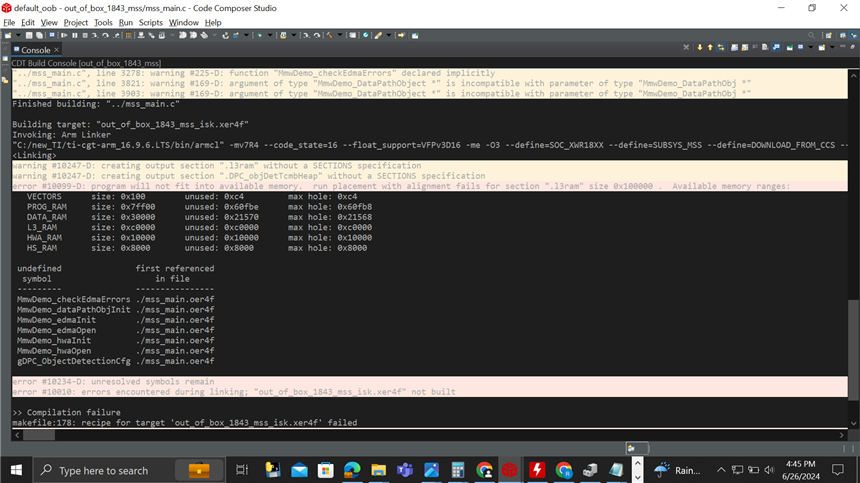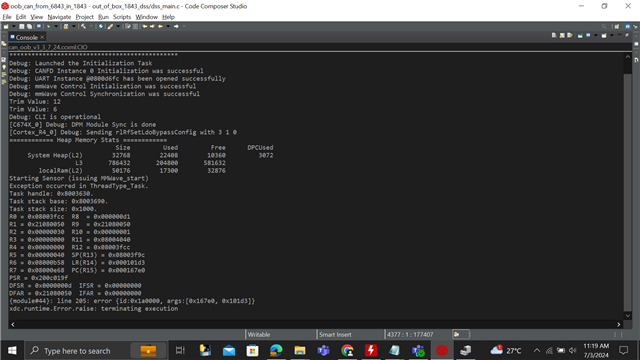Other Parts Discussed in Thread: AWR1843, AWR6843
Tool/software:
Hi TI,
In our application we are working on CAN protocol . We want to know the Pinmux for CAN pins of Awr1843AOP. In the TI tool mux only AWR18XX is present, can we use the same for AWR1843AOP also or please provide the tool mux for AWR1843AOP?






